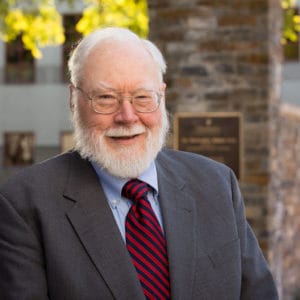Faculty
-

David Luis-Brown
Associate Professor of Cultural Studies and English
Research Interests
Hemispheric Americas studies, Latino/a/x studies, Black diaspora studies, American literature and culture
-

Eric Bulson
Andrew W. Mellon All-Claremont Chair in the Humanities
Professor of English
Chair, English DepartmentResearch Interests
James Joyce, Modernism, Critical theory, Media studies, World literature, Visual storytelling, British and Anglophone literature (1850–2000)
-

Mark Eaton
Research Associate Professor of American Literature
Research Interests
American literature and culture, film studies, historical fiction, religious studies, religion and literature
-

Lori Anne Ferrell
Dean, School of Arts & Humanities
Director, Early Modern Studies Program
Director, Kingsley & Kate Tufts Poetry AwardsResearch Interests
English Renaissance and Reformation Literature; Early Modern British and European History; Reformation Studies, Protestantism, the Bible and English-language Culture; the Bible in America; William Shakespeare
-

Wendy Martin
Professor of American Literature and American Studies
Research Interests
American literature and culture, American poetry, American studies, Women’s studies, Death and Dying in American Literature and Culture; Jazz in American Culture
-

Robert Hudspeth
Research Professor of English
Research Interests
Margaret Fuller, Henry David Thoreau
Extended Faculty
-
Myriam Chancy
Scripps College
Research Interests
African diaspora with specialization in its literature
-
Kevin Dettmar
Pomona College
Research Interests
British and Irish modernism, and contemporary popular music
-
Kimberly Drake
Scripps College
Research Interests
Protest writing and rhetoric, American literature and culture, Disability literature, Prison writing, Short story and experimental fiction writing, Punk rock literature and subcultures, Writing pedagogy, Feminist theory, disability theory, queer theory, theories of race and class
-
Warren Liu
Scripps College
Research Interests
Contemporary American literature; Asian American literature
-
Aaron Matz
Scripps College
Research Interests
British fiction, 1850-present, history of the novel in England and France, literature and morality, realism, satire, and theory of genre
-
Sarah Raff
Pomona College
Research Interests
18th- and 19th-Century British literature, History and theory of the European novel, Jane Austen
Curriculum
Core Courses
- British literature before 1750
- British literature after 1750
- American literature before 1900
- American literature after 1900
- British or American literature of any period
- Introduction to Literary Theory
Elective Courses
- Four elective courses
Research Tools Requirement
- One foreign language exam
- Field Exam in English and American Literature
Application Guidelines
| University Requirements | |
|---|---|
| Application Fee | $80 (fee is non-refundable) |
| Official Transcripts | Undergraduate/graduate |
| English Proficiency Exam | Required (international applicants only) |
| Resume | Applicants must submit an up-to-date copy of their resume. |
| Program Requirements | |
|---|---|
| Statement of Purpose | Please submit a 2-3 page statement of purpose that details your academic and/or professional achievements, your specific areas of research interest within your desired field of study, why you are a strong candidate for graduate studies at CGU, and your career goals. |
| Letter of Recommendation | 3 letters required |
| Standardized Test Scores | GRE (optional) |
| Writing Sample | All applicants are required to submit a writing sample of previous work in addition to the statement of purpose. You may submit samples of any length you feel indicate your writing ability, but please note that we will be unable to return any items submitted as part of your application (please, no books). Most applicants submit one or two scholarly papers or excerpts of around 10-15 pages. Writing samples should not exceed 30 pages. |
Key Dates & Deadlines
CGU operates on a priority deadline cycle. Applicants are strongly encouraged to submit complete applications by the priority dates in order to assure maximum consideration for both admission and fellowships.
Once the priority deadlines have passed, the University will continue to review applications for qualified candidates on a competitive, space-available basis. The final deadlines listed are the last date the University can accept an application in order to allow sufficient time to complete the admissions, financial aid, and other enrollment processes.
Spring 2025
Priority Deadline – November 1, 2024
Final Deadline (International) – November 15, 2024
Final Deadline (Domestic) – December 1, 2024
Classes begin – January 21, 2025
Fall 2025
Priority Deadline – February 1, 2025
Final Deadline (International) – July 5, 2025
Final Deadline (Domestic) – August 1, 2025
Classes begin – August 25, 2025
Cost & Aid
ESTIMATED TUITION (CALIFORNIA RESIDENTS, NON-RESIDENTS, INTERNATIONAL)
| Program | 40 units |
| Tuition per unit* | $2,020 |
*Based on 2024-2025 tuition rates.
STUDENT FEES (PER SEMESTER)
| $245 Student Fee |
| $150 Technology Fee |
| International Student Services Fee**: $661 fall semester, $776 spring semester **Applies to all international students (F-1 visa only) who are registered in coursework, doctoral study, or continuous registration. The fee is assessed each fall and spring semester for annual ISO accident and sickness plans and administrative fees. Subject to changes. |
For estimates of room & board, books, etc., please download CGU’s Cost of Attendance 2024-2025.